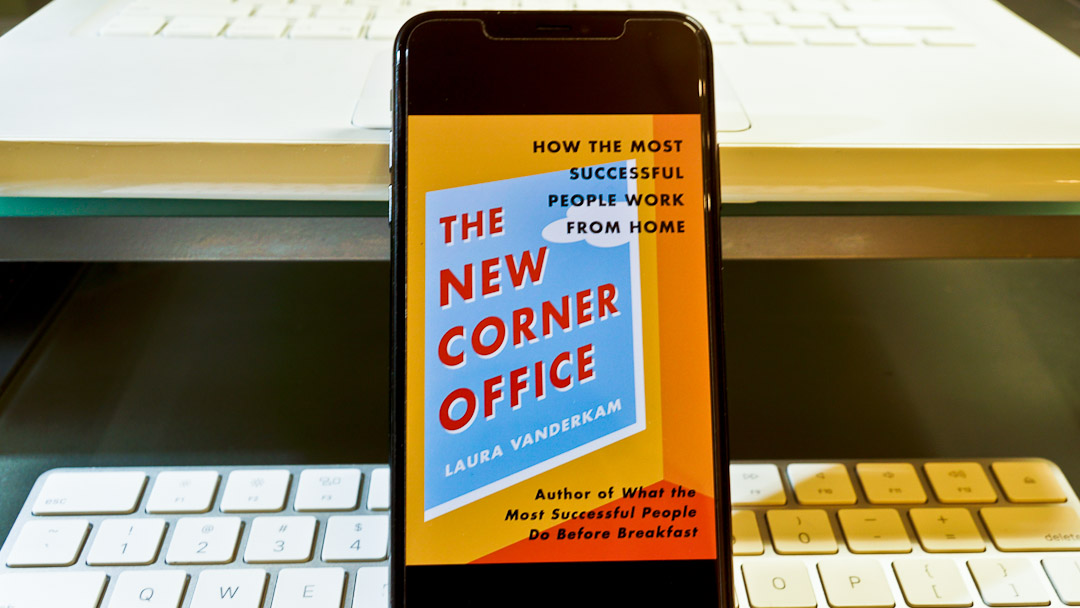
Efforts to Retain Women in Law In and Outside of Law Firms
After you post a LinkedIn update that conveys content you’re really interested in and the update is liked by others, what do you do?
Do you contact those who liked your update to learn more about them and carry on a discussion about the shared topic? I recently did.
About a month ago I posted a LinkedIn update with a link to the article “The 60 Best Law Firms for Women (2018)”, which was published on Above the Law. The article relayed how some of the named firms are making a long-term commitment to retain and promote women. For example, author Staci Zaretsky listed generous parental leave policies, formal sponsorship programs, and backup care and in-home care for family members as some of the efforts.
My LinkedIn update was liked by lawyers in Ontario, some of whom I’ve never met. I am extremely grateful for their support in liking the update.
I was curious to learn what activities they are aware of to retain and promote women in law that look promising. I wanted to share their thoughts with others in the legal community, and I was elated by the enthusiastic responses I received to participate in this blog post.
I share below the comments provided to me by the time this post was published.
Small Law Firm
 Vasiola Bibolli is a first-year associate at Mazin & Associates, practising in personal injury litigation. She is keen on helping people, and seeks opportunities where strong leadership and vision are valued.
Vasiola Bibolli is a first-year associate at Mazin & Associates, practising in personal injury litigation. She is keen on helping people, and seeks opportunities where strong leadership and vision are valued.
For Vasiola, she believes mentoring in law school can be an important early influence in the retention of women in law:
I have been fortunate to receive tremendous support from professors and senior lawyers as they have encouraged my growth in the legal realm. In law school, the courses with a research paper component enabled me to work closely with my professors during the writing process. Having many passions as a young academic, I witnessed the effect that the power of my professor’s encouragement had on my life. They allowed me to discover opportunities which in turn promoted my creativity. I believe that the mentorship that women receive even prior to entering their legal career, creates an everlasting impact on the retention of women lawyers. Therefore, the lesson is to seek people who are continuously dedicated to your success.
Vasiola relays how her firm embraces flexibility, and that it isn’t merely used as a hiring tool:
At my current law firm, we have a cloud-based system which allows associates to sign-in remotely. This is helpful to all associates, but especially women with parental responsibilities. Associates are able to work remotely after 5:00 p.m., should their schedule demand it. Allowing women to work from home via remote access may help to retain them in the workforce longer. Remote access helps to provide flexibility in balancing work and home life. Therefore, although women may spend less time at the office, they still have the opportunity to demonstrate a strong work ethic.
Here are some areas Vasiola thinks law firms need to embrace:
Law firms should also invest in the careers of women by encouraging their development in decision-making positions. In order for women to attain decision-making positions, mentor-mentee relationships should be fostered and meaningful work appropriately distributed. It is equally important for women lawyers to be vocal about their ability to take on demanding assignments despite their other responsibilities.
BigLaw
 Cindy Kou is a business law associate at Gowling WLG with a practice focused in construction law and technology law. She enjoys writing and speaking about unconscious bias, and is grateful to her firm for giving her opportunities to explore and challenge unconscious biases on Bay Street.
Cindy Kou is a business law associate at Gowling WLG with a practice focused in construction law and technology law. She enjoys writing and speaking about unconscious bias, and is grateful to her firm for giving her opportunities to explore and challenge unconscious biases on Bay Street.
Cindy describes a few initiatives the Gowling WLG has taken to benefit women in law. The introduction of a parental leave in addition to a maternity leave is one example. As Cindy states, “It may not be obvious why adding parental leave is a benefit to women, but I think it does a few things”. She observes:
- It challenges assumptions about who “looks like” a caregiver and who “looks like” they might lean out of their careers once they have children. Family and childcare duties become more normalized obligations that everyone can have (and want!). Also, people who do not have “traditional” families (ex: same-sex couples, families who adopt or engage surrogates) no longer need to decide between forgoing a leave, advocating for a leave exception, or leaving the firm if they have children.
- A parental leave shifts how client relationships can be concentrated due to people going on leaves. Given the challenges firms face with retaining women, leaves often meant a concentration of transition work and client relationships in the hands of men. Having parental leave increases the likelihood that women will receive transition work and relationships.
- The discussion about parental leaves triggered a broader discussion about on- and off-ramping processes for people going and coming back from leaves. This sets an important precedent for other discussions about different types of leaves.
Another initiative relates to the networking opportunities that the firm’s Gowling WLG Realizing Opportunities for Women (GROW) committee provides. Cindy describes:
It’s a women’s-only networking group led by two well-respected female partners and well-resourced. GROW hosts a few client-facing events each year and all female students and lawyers are encouraged to attend and to invite clients or contacts. The top notch events are great opportunities for junior women to practice networking.
Cindy notes a further effort:
Finally, our D&I council and unconscious bias trainers are sounding boards for discussing and sourcing support for inclusion initiatives at the firm. Gender equality is not the sole focus of these initiatives, but their existence makes space for and normalizes inclusion efforts in our workplace, including for women.
Cindy concludes:
Like all firms, Gowling WLG’s inclusion work is on-going, but the above are a few examples of big steps in the right direction.
Ontario Public Sector
Wendy Ngai is a lawyer who worked at the Ontario Ministry of the Attorney General (MAG) when she was a student-at-law.
In response to what Wendy has seen as steps that look promising in the retention and promotion of women lawyers, she notes:
The Ontario Public Service (OPS) recently released an Inclusion & Diversity Blueprint to retain and promote women and individuals from minority groups. One of the Blueprint’s goals is to actively shortlist and promote members of these groups into more senior/management roles, so that Ontario’s diversity is reflected in the public sector workforce (and of more relevance to your question, in the Ministry of the Attorney General’s workforce).
Wendy relays some examples of other initiatives that the OPS and MAG have undertaken:
- Being receptive to flexible work arrangements (i.e. tele-working from home once a week, job sharing, secondments, opportunities to take a leave without pay for up to one year and be able to return to one’s legal services branch – in accordance with the terms and conditions of the Association of Law Officers of the Crown bargaining agreement);
- Incorporating active female participation in key management committees; and
- Implementing comprehensive training to sensitize management to unconscious bias that may creep into evaluations of female lawyers.
In Wendy’s view:
MAG / the OPS have taken concrete steps in retaining women lawyers within the government workforce – and as a female, minority lawyer who has more recently entered the legal industry, that is quite promising.
Federal Public Sector
 Naiyna Sharma is an active mentor to women in law and works as legal counsel at Justice Canada. She is co-chair of the employment equity committee for women at the Department and the Creator & Director of the South Asian Women in the Law mentoring program, which has matched over 100 Women in less than 10 months together.
Naiyna Sharma is an active mentor to women in law and works as legal counsel at Justice Canada. She is co-chair of the employment equity committee for women at the Department and the Creator & Director of the South Asian Women in the Law mentoring program, which has matched over 100 Women in less than 10 months together.
Naiyna states that “Justice Canada has done a tremendous job in advancing its work on employment equity matters.” She and Marie-Claude Lepage, Senior Wellness Advisor – Wellness Program at Justice Canada, work together as co-chairs of the Advisory Committee on Women at Justice:
We work to raise issues that are systemic barriers to the progress of women, and improve the quality of life of women at the Department. The Department’s commitment to equity has had tangible success in terms of representation of women in the Department. Acknowledging systemic barriers and working to deconstruct and address them is the only way to succeed at eradicating them for any institution. It is about an ongoing, constructive dialogue and knowing we’re all in this together.
She relates some of the ways Justice Canada is improving the quality of life and retention of women in law:
Some examples relate to the development of tools for the use of managers and employees which assist them in understanding policies on flexible work arrangements and parental leave. In creating and sharing these tools and providing information sessions management and employees are better positioned to work together in addressing how employees can achieve work-life integration in their lives. This type of commitment in policy and action encourages not only the retention of women but fosters their success at work. There are also mechanisms in place in terms of HR and union support as well as mediation and dispute resolution to assist managers and employees to address unresolved issues where such provisions are not well understood or properly adhered to. We continue to develop effective communication strategies for managers and employees to understand and work with these policies.
Justice Canada recognizes that support for concerns inside and outside of the workplace are needed. Naiyna indicates that they have “developed a fact sheet on intimate partner violence for employees and employers to help navigate this difficult experience and its impact.” Moreover, Naiyna relays:
We host a number of panels and events during the year on issues related to women’s health, self-esteem, and mentorship and networking – all aspects to help foster and support dialogue and growth in the workplace. Similar work is mirrored by 3 other employment equity committees related to indigenous people, persons with disabilities, visible minorities, and a safe space community for LGBTQ2 who have their own challenges and successes to speak of.
Community Support
Efforts to support women in law do not happen only in the workplace.
 Nicole Salama was a litigator for several years, and is now a Program Lawyer and Legal Career Counsellor at Osgoode Hall Law School where she designs and develops innovative programs for JD students. In addition to her position at Osgoode, Nicole blogs at The Professional Mom Project where she writes about life as a working mom and parenting. Also she supports women lawyers and law students through an organization called Women Evolving and Leading in Law (WELL), which she started with two friends.
Nicole Salama was a litigator for several years, and is now a Program Lawyer and Legal Career Counsellor at Osgoode Hall Law School where she designs and develops innovative programs for JD students. In addition to her position at Osgoode, Nicole blogs at The Professional Mom Project where she writes about life as a working mom and parenting. Also she supports women lawyers and law students through an organization called Women Evolving and Leading in Law (WELL), which she started with two friends.
Nicole explains why WELL was created:
We see amongst our friends and individuals we work with the amount of attrition in the profession and it doesn’t have to be this way. We are working to create and encourage a community where women working in the legal profession or studying law can come together, share information and build authentic careers where they feel valued, connected and respected. It is our hope that by creating a community of this type we can support women in the profession and encourage women to stay and change the world for the better.
WELL has a Facebook Group at facebook.com/groups/WELLinLAW for women who are interested in joining. WELL is a group where women can feel comfortable sharing their stories and asking their questions. Members of WELL range in experience from new 1L law students to seasoned professionals. The moderators host both in-person and virtual events and hope to create additional offerings in the coming months. Also WELL is currently working on its website at Wellinlaw.com where the moderators hope to grow the community and offerings further.
What Can We All Do Next?
I would like to give a big thank you to each of these lawyers for their time in reflecting on this topic and voicing their thoughts. Efforts are indeed being made to assist with the promotion and retention of women in law in Ontario.
 If you want to read more about efforts to retain women in and outside of law firms, there’s a new blog series on the horizon. Erin Cowling, freelance lawyer, legal writer and researcher, and founder of Flex Legal, reveals:
If you want to read more about efforts to retain women in and outside of law firms, there’s a new blog series on the horizon. Erin Cowling, freelance lawyer, legal writer and researcher, and founder of Flex Legal, reveals:
I plan to start a new blog series in 2019 that will build on my Women Leading In Law series of 2018. It will focus on law firms or legal departments that have implemented equality, diversity and inclusion initiatives. I hope that the new series will highlight what is working (or not working) in increasing the retention and promotion of women and members of other equality seeking groups in the legal profession.
The things you learn when you reach out to those who engage with your LinkedIn updates! If you know of any law firms or legal departments who would be willing to speak with Erin about their initiatives and the steps they have taken, please have them reach out to her at erin@cowlinglegal.com.
Meanwhile all lawyers: reflect on this topic, and inquire about the efforts occurring in your workplace, what women in law would like to see happen and think are working and aren’t, and what you can do to support retention and promotion initiatives. Even a simple like of someone’s LinkedIn update on this topic is a good start. Who knows where that could lead to?
By the way, I asked each lawyer who participated in this blog post whether they would be open to further discussing this topic with others, including being interviewed and participating in a panel discussion. Every lawyer said yes.




Awesome post Eva! I’m really proud to be a part of it. You’ve got some fantastic women with some amazing advice here. Hopefully if we all work together we can see change in the profession. Thanks again for including me!